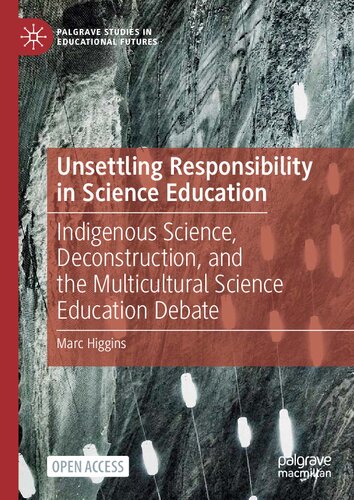

Most ebook files are in PDF format, so you can easily read them using various software such as Foxit Reader or directly on the Google Chrome browser.
Some ebook files are released by publishers in other formats such as .awz, .mobi, .epub, .fb2, etc. You may need to install specific software to read these formats on mobile/PC, such as Calibre.
Please read the tutorial at this link: https://ebookbell.com/faq
We offer FREE conversion to the popular formats you request; however, this may take some time. Therefore, right after payment, please email us, and we will try to provide the service as quickly as possible.
For some exceptional file formats or broken links (if any), please refrain from opening any disputes. Instead, email us first, and we will try to assist within a maximum of 6 hours.
EbookBell Team

0.0
0 reviewsThis open access book engages with the response-ability of science education to Indigenous ways-of-living-with-Nature. Higgins deconstructs the ways in which the structures of science education―its concepts, categories, policies, and practices―contribute to the exclusion (or problematic inclusion) of Indigenous science while also shaping its ability respond. Herein, he undertakes an unsettling homework to address the ways in which settler colonial logics linger and lurk within sedimented and stratified knowledge-practices, turning the gaze back onto science education. This homework critically inhabits culture, theory, ontology, and history as they relate to the multicultural science education debate, a central curricular location that acts as both a potential entry point and problematic gatekeeping device, in order to (re)open the space of responsiveness towards Indigenous ways-of-knowing-in-being.